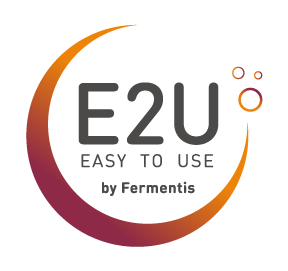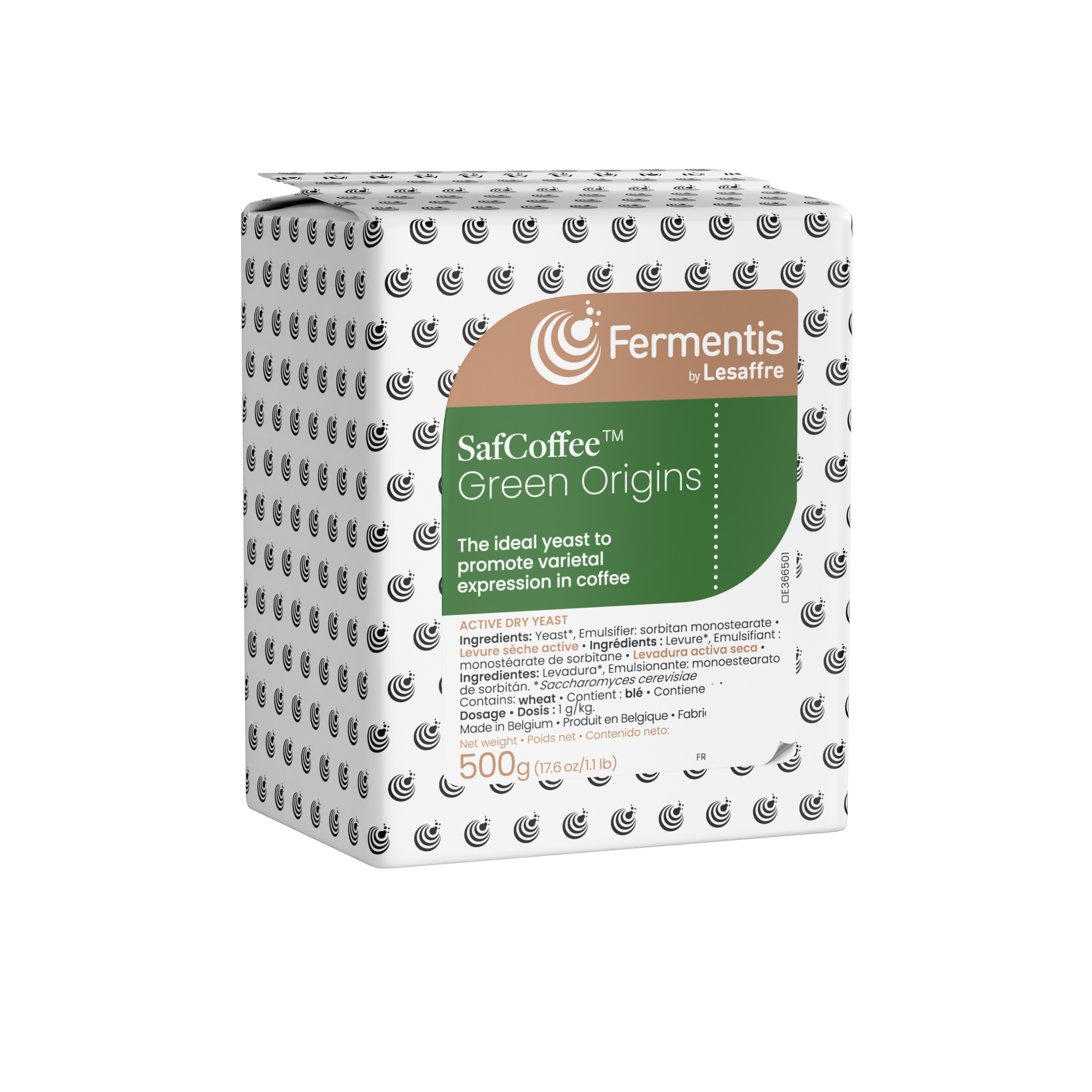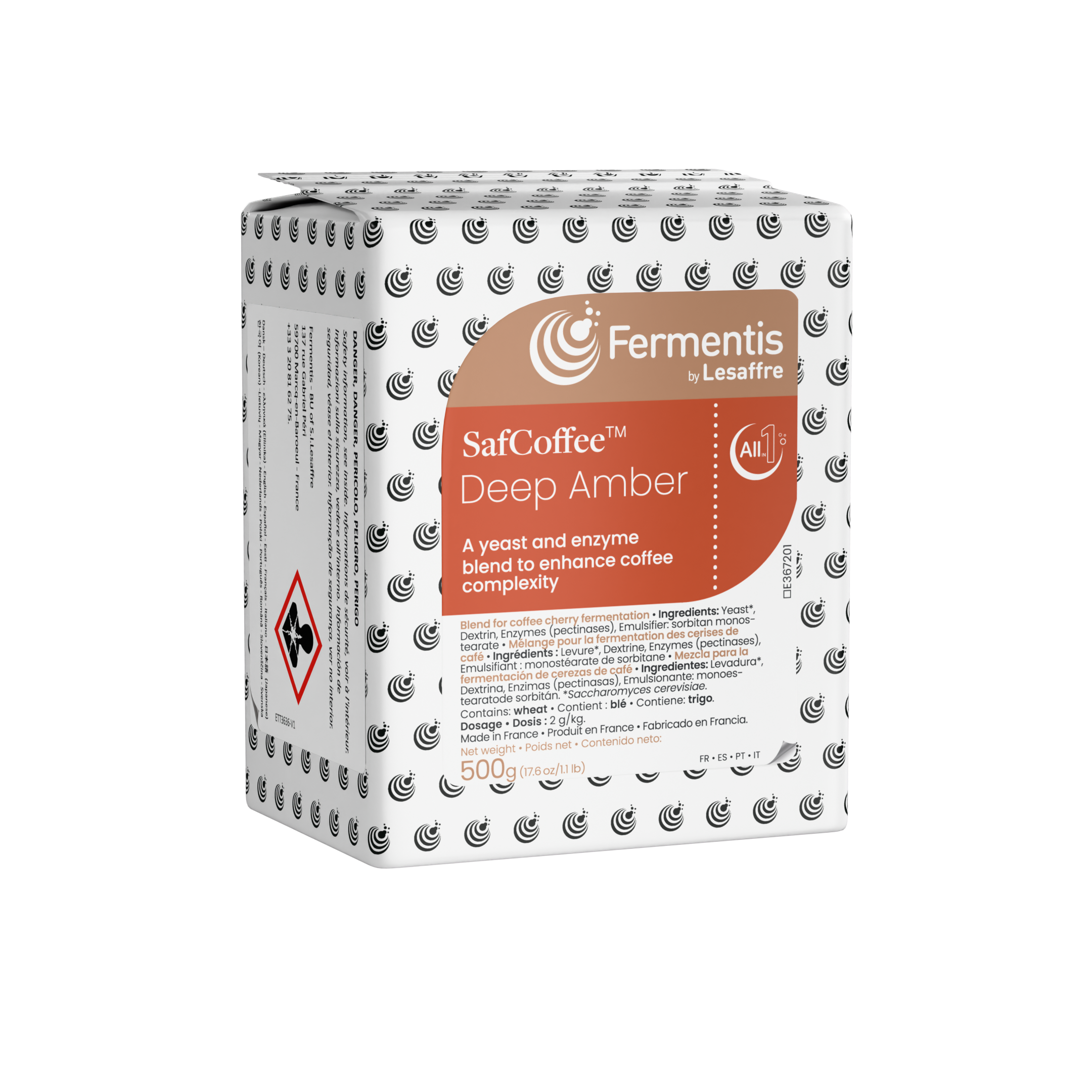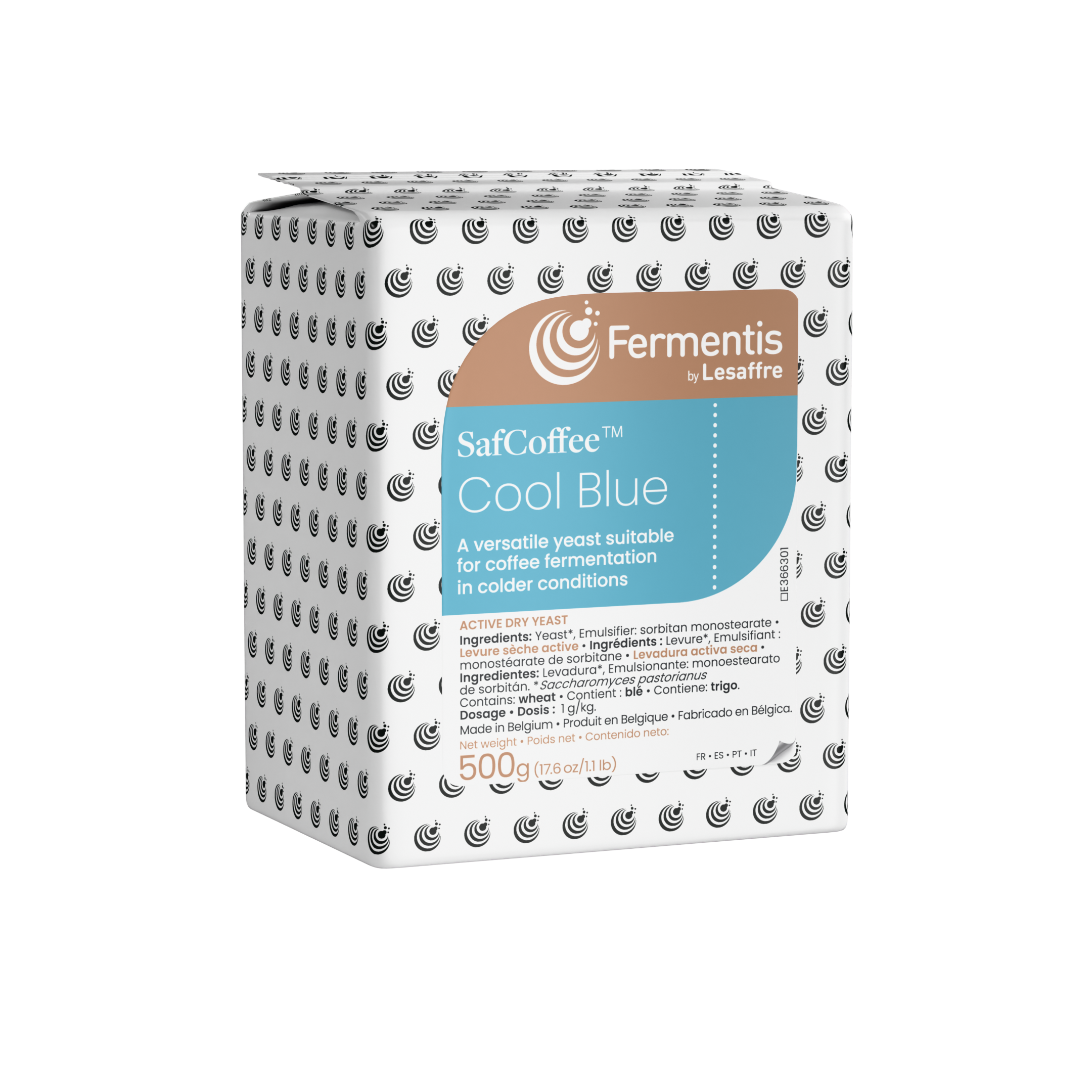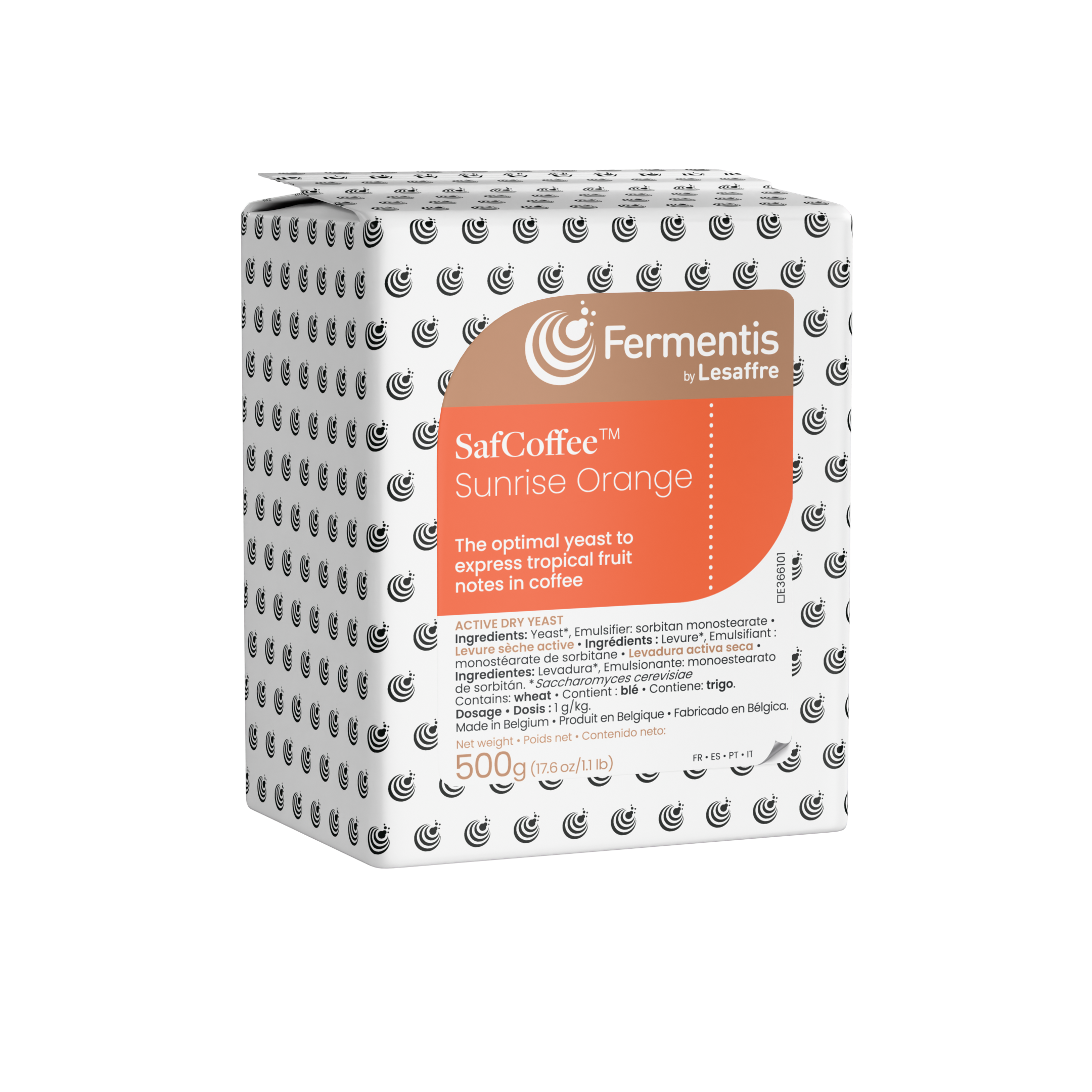FOR FRUITY AND VELVETY RED WINES
SafŒno™ FV 19 was selected by Fermentis through multiple microvinifications on red wines in partnership with French research institutes and oenological experimental centers around the world.
Dosage: Red wines 20 g/hl (1.67 lb/1,000 gal)
Ingredients: Yeast (Saccharomyces cerevisiae*), Emulsifier: Sorbitan monostearate
*According to « Revisiting the taxonomic synonyms and populations of Saccharomyces cerevisiae – Phylogeny, Phenotypes, Ecology and Domestication. » Pontes A., Hutzler M., Brito P.H. and Sampaio J.P., 2020 and « Genome Diversity and Evolution in the Budding Yeasts (Saccharomycotina). Genetics. » Dujon B.A., Louis E.J., 2017 ; 206(2):717‐750.
SafŒno™ FV 19 sensory features
For fruity and smooth red wines:
SafOEno™ FV 19 has the ability to mask the vegetal notes of certain wines while improving the sensations of fruitiness and smoothness. By bringing sweetness and roundness to wines, SafOEno™ FV 19 greatly improves the quality perception of the tannins while decreasing their astringency.
SafOEno™ FV 19 also produces a significant amount of fruity fermentative aromas ranging from red fruit (pomegranate, cherry) to black fruit (blackcurrant) and is the ideal choice for the production of fruity and velvety red wines crafted for a quick release to the market.
SafOEno™ FV 19 is a great tool for the vinification of elegant and smooth wines from varieties such as Merlot, Cabernet Sauvignon, Syrah, Grenache, Tempranillo, Nero d’Avola and Nebbiolo.
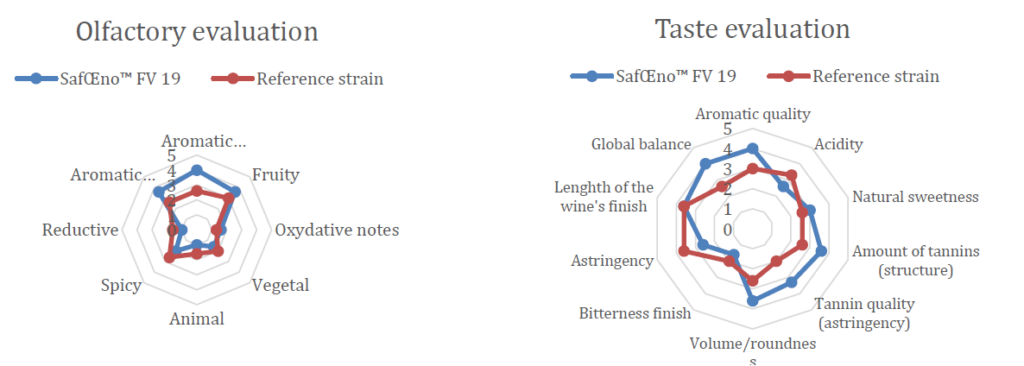
Country: Italy, Grape variety: Nero d’Avola/Syrah, Vintage: 2021.
Chemical characteristics of the wine after ALF: Alcohol: 14.31% v/v, pH: 3.65, total acidity: 5.37 g/L H2SO4, volatile acidity: 0.49 g/L H2SO4
SafOEno™ FV 19 takes wines towards a fruity (red and black fruit), floral, fresh, and balanced profile by masking the drying tannins on the finish.
SafŒno™ FV 19
Fermentation abilities:
- Short to medium lag phase
- Medium and regular fermentation kinetics
- Maximum ethanol tolerance: up to 16% v/v
- Recommended range of temperature: 17-28 °C (62.6-82.4°F)
- Medium nitrogen requirements: ratio YAN (mg/L) / Initial sugars (g/L) ≥ 0.8 – 0.9
Metabolic Characteristics:
- High implantation strength
- Killer factor: Neutral
- Very low malic acid consumption
- Medium volatile acidity production
- Low H2S and SO2 production
The Lesaffre know-how and continuous yeast production process improvement generates an exceptional quality of dry yeasts able to resist a very wide range of uses, including by-passing acclimatization, cold or no rehydration conditions, without affecting their viability, kinetic and/or analytical profile. Winemakers can choose to use our E2UTM yeast with the process that fits best their needs:
- Direct inoculation: Inoculate the desired quantity of yeast directly into the must in the fermentation tank, taking care to homogenize the entire volume. In white or rosé wines, ideally, sprinkle directly the yeast into the fermentation tank during the filling (after settling) to ensure a good homogenization. Alternatively pour the desired quantity of yeast on the surface of at least 10 times their weight of must. Gently stir to avoid lumps. Immediately transfer into the tank and homogenize the entire volume.
- With prior rehydration and potential acclimatization: Gently pour the desired quantity of yeast into 10 times its weight of tap water at 15-37°C (59-98.6°F). Gently stir to avoid the formation of lumps. Leave it to rest for 20 minutes and incorporate the yeast starter to the fermentation tank with homogenization. Following the rehydration, it is possible to continue with acclimatization by incorporating to the yeast starter ½ of a volume of must and leave it to rest for 10 minutes. Repeat the operation until the temperature difference between the fermentation tank and the yeast starter culture is less than 10°C (50°F).
Packaging
- Cardboard box of 20 vacuum-packed sachets of 500g / 1.1 lb each (Full box net weight: 10 kg / 22.05 lb)
- Cardboard box of 1 vacuum-packed 10kg / 22.05 lb (Full box net weight: 10kg / 22.05 lb)
Guarantee
The product must be stored/transported in dry conditions and protected from direct sunlight. For less than 6 months, the product can be stored/transported at ambient temperature below 25°C (77°F) without affecting its performances. Peaks up to 40°C (104°F) are allowed for a limited period of time (less than 5 days). Fermentis recommends a long-term storage at a controlled temperature (below 15°C/59°F), once the product arrives to the final destination. Fermentis guarantees the product complies with OIV specifications until its Best Before End Date in the storage conditions mentioned above. The product is also authorized as per TTB.
Each Fermentis yeast is developed under a specific production scheme and benefits from the know-how of the Lesaffre group, world leader in yeast manufacturing. This guarantees the highest microbiological purity and maximum fermentation activity.
The information provided by Fermentis is for informational purposes to the attention of professionals only. We make no representation or warranty of any kind, express or implied, regarding the information: regulatory and intellectual property requirements (including product use and claims) shall be reviewed locally for their particular purposes.










